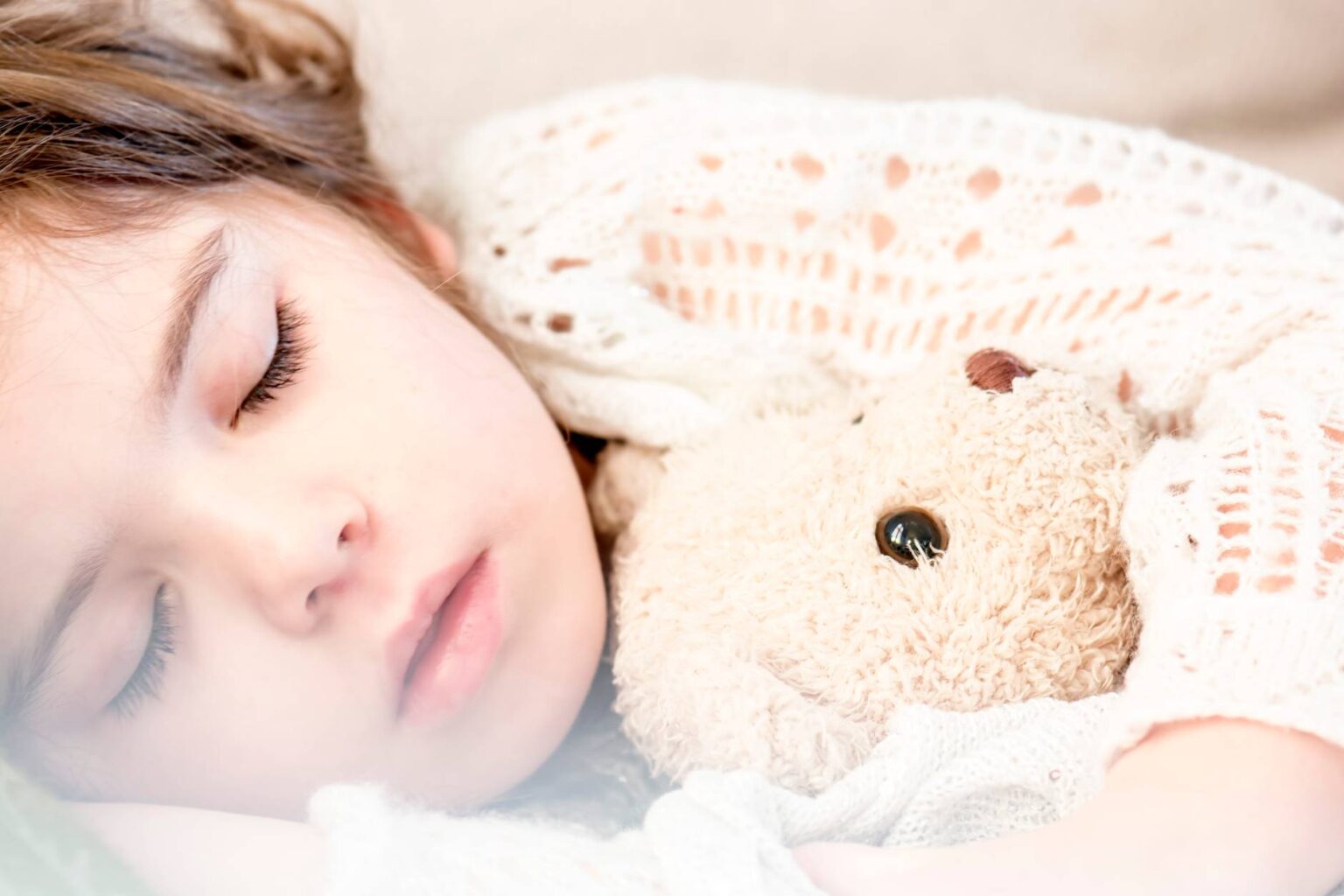Raising a child with autism spectrum disorder (ASD) poses many unique challenges for you as a parent. Sleeping Tips for Children With Autism Spectrum Disorder (ASD)
One of the most commonly affected areas involves sleep. Good sleep during pregnancy is certainly important, but so too is adequate rest postpartum and into childhood for both you and your child.
As your child ages, lost sleep usually results from their inability to sleep. If they can’t fall asleep, have bad dreams, or wake up frequently, then they may wake you up directly or indirectly through the noise they make.

Making matters worse, they’ll suffer from the effects of poor sleep. Losing even a few hours of sleep is enough to cause negative effects on their mood, energy, and cognitive skills, especially for a child with ASD.
To help your child (and you as a result) get better sleep, we’ll point out a few suggestions to encourage healthy rest below.
Create a Sleeping Schedule
To begin, you should create a consistent sleeping schedule for your child that they can stick to.
A sleeping schedule is a smart idea for any child or adult, but it’s particularly important for kids with autism. This is because of how important routines and familiarity are.
Children with autism highly prefer routines because they know what to expect. Straying from a routine often causes issues.
One of the best ways to regulate sleeping is by ensuring it happens at the same time every night. This gives your child an understanding to follow and will help their biological clock adjust as well.
Something to keep in mind is picking a bedtime that they feel sleepy at. You can start by setting a later bedtime and slowly dialing it back as they acclimate to naturally feeling tired at the same time every day.
With a good schedule in place, your child will appreciate it and get better sleep as a result.
Dedicate Time to Winding Down
Before bed, you should dedicate time to winding down.
After creating a sleep schedule, you should leave the last hour or so before bed as the time to prepare for sleep. This will create a ritual that your kid will come to crave.
During this time, you should be careful about what your child does.
They shouldn’t have any screen time just before bed because the blue light emitted from screens is disruptive to sleep. It’s also important to avoid any sugar or caffeine close to bedtime as this will only keep them up.
This is a good time for them to brush their teeth and bathe. Once they’re finished, you can read a story, give them a light massage, or sing them a lullaby to help them feel relaxed.
This process is sure to make your child feel sleepy. As they perform it each day, they’ll fall asleep quicker and quicker.
Winding down is essential to calming down your child’s body and physically preparing them to sleep.
Reduce Bedtime Irritations
Another significant strategy is to reduce bedtime irritations.
While your child may feel tired, it can be hard to sleep if they are irritated or uncomfortable. Any sleeping distractions are likely to be more problematic for a child with ASD.
Children with autism are more stimulated by their environment and have a harder time processing it. This makes it difficult to tune out distractions when trying to sleep.
Considering this, a few areas should be focused on.
First, their pajamas and bedding should be cool, comfortable, and not itchy. It should be pleasant for them to sleep in without any discomfort.
Second, their sleeping environment should be kept dark. Consider purchasing black-out curtains to ensure that daylight does not disturb their sleep.
Third, the rest of the house must be kept quiet. If other people in the house are making noise, it will likely keep your child awake.
Do your best to keep your child’s sleeping environment as comfortable and relaxing as possible.
Consider Sleeping Aids
A final tip is to consider the use of sleeping aids.
Some children have a particularly difficult time falling asleep. They may feel tired, but falling asleep just doesn’t happen.
Fortunately, you can help them fall asleep with the use of several different sleep aids. This refers to any type of supplement or device that promotes sleep.
Using a sleep aid may seem daunting, but it can be as innocent as turning a fan on to create white noise. Sleep aids can be very diverse, but most are safe for your child.
Some of the great safe choices include melatonin supplements, white noise machines, or specially-designed wireless headphones for sleeping.
Melatonin supplements are safe for children in small doses. This supplement promotes the hormone melatonin, which is responsible for regulating your sleep cycle.
White noise machines are excellent for providing background noise. This gives them something to focus on and creates a relaxing atmosphere.
Wireless sleep headphones may sometimes come with built-in face masks that can totally block light and noise. In effect, it can help you fall asleep in half the time.
Many sleep aids exist and they will help your child fall asleep. Just be sure to find one that is safe for kids!
Closing Thoughts
Children with autism often have difficulties sleeping. This is incredibly frustrating and causes problems in their daily life. Loss of sleep is extremely detrimental and will make their life more difficult.
Fortunately, a few strategies are particularly effective at helping children with autism get to sleep. This includes a sleeping schedule, dedicated time for winding down, reducing bedtime irritations, and using sleeping aids.
Good sleep may seem impossible, but it just requires some effort and persistence. When your child gets better rest, they’ll appreciate it and you’ll be able to sleep at night, too!

